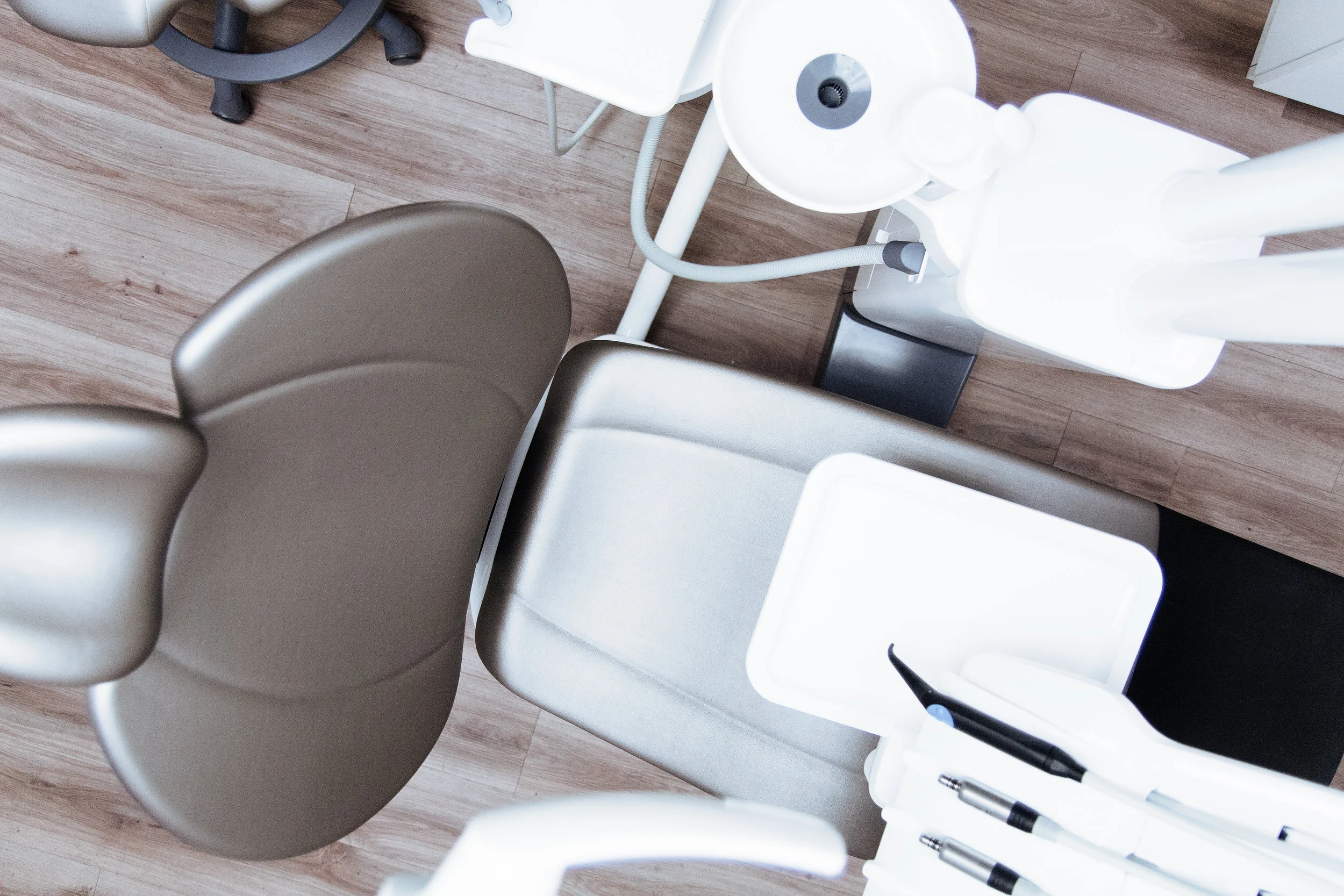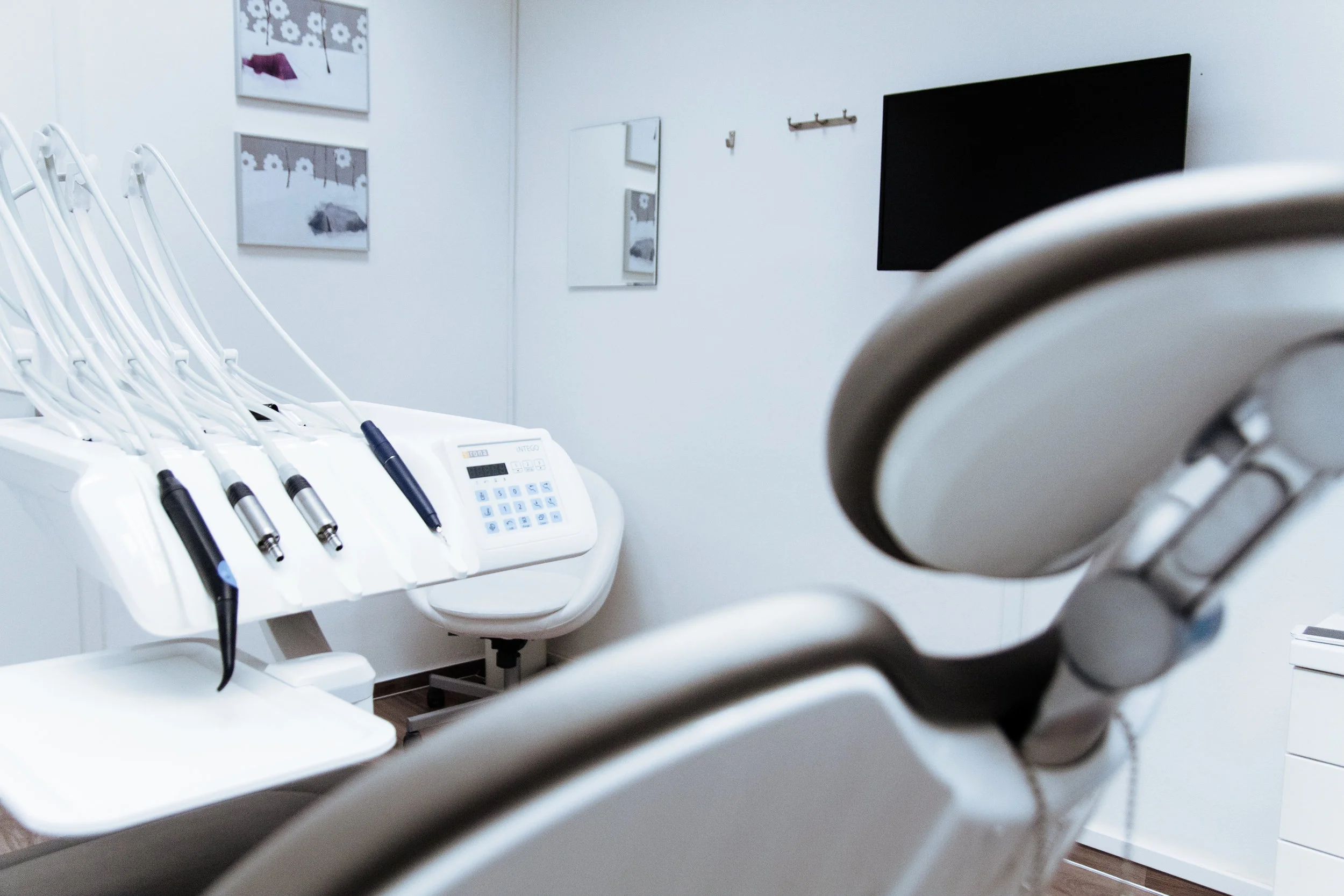Keep your healthy teeth intact this holiday season with the oral heath and dental care tips from Magnolia Dental of Greenville, South Carolina.
How is a Tooth Extraction Performed in Greenville, SC?
How Often Should Greenville Residents Get Their Teeth Cleaned?
Why You Shouldn’t Procrastinate on Getting Cavities Filled
With all of the sugary products and junk food on the market, it’s easy for anyone to get a cavity. Getting a cavity every once in awhile isn’t alarming. And even if you don’t indulge in sweets, some people are just genetically prone to getting cavities.
Don't hesitate to schedule an appointment with Magnolia Dental to have your cavities filled.
But too many people procrastinate on making that filling appointment, let alone procrastinate going to the dentist in general.
Regardless of how you get them, it’s important to get your cavities filled as soon as your dentist diagnoses it. Here are a few reasons why it’s important to not procrastinate on getting your cavities filled.
Food Can Get Stuck in Your Cavities
It’s gross, but it’s true. When you eat food with a cavity, what you eat can get stuck in your teeth. This is especially common when you eat sticky foods.
If you’re still eating sugary foods when you have a cavity, the cavity can get even worse. When sugar is combined with bad bacteria, it breaks down enamel causing the hole to get even larger.
Having a cavity is bad enough; no one wants to make the situation worse.
You Can Get a Toothache
A classic toothache: it's not always severe, but it's one of the most painful experiences you'll ever face. And often, a toothache is the first sign your cavity is getting really bad.
The pain is caused by the bacteria that get into your tooth from the cavity. Fortunately, when the cavity is filled, and the bacteria are killed off, the pain will go away.
The Cavity Will Just Get Worse
When you get a cavity, it doesn’t go away on its own. Left untreated, the cavity will just continue to get worse.
When you first get a cavity, the hole is tiny and often painless. There’s a good chance you don’t even notice the cavity until the dentist finds it. But the moment your dentist informs you that you have a cavity, immediately schedule an appointment.
If you let your cavity sit without treatment, the repercussions can be as minuscule as a toothache or as severe as an abscess or tooth loss.
Kill the Bacteria in Your Mouth
When you go for a cavity filling, the dentist is doing more than filling up a hole in your tooth. They are drilling in your tooth to remove all of the bacteria.
For very severe cavities, the dentist may prescribe antibiotics to help kill the bacteria in your mouth and prevent further infections. They may also flush out the tooth to kill off the bacteria before the filling. Dentists do this to prevent an abscess forming.
You Can Lose Your Tooth
Let’s say you got a cavity, and you never went to the dentist. As the cavity grows worse, the once minor cavity completely decays the tooth, and more work will be required to restore the tooth.
As the cavity sits, more acid will break down tooth enamel and cause the hole to get bigger. The more plaque builds, the more difficult it becomes for your gums and bones to hold that tooth in place. This is how tooth decay forces your teeth to fall out.
You Can Get an Abscessed Tooth
Possibly one of the most painful experiences you may ever go through will be an abscessed tooth. Caused by severe tooth decay, an abscess occurs when pus and bacteria from inside of the tooth. Abscesses are most commonly caused by an untreated cavity, but you can also get them from a dental injury or gum disease.
The center of the tooth, the pulp, is the first to receive the damage. When this occurs, you’ll usually feel hot and cold sensitivity. As the infection spreads, it can go to your gums and bones. The infection will hit your nerves, causing intense pain. At this stage, the only way to rid yourself of the infection is by getting a root canal.
In some instances, your family dentist will need to refer you to an endodontist. If you show symptoms of an abscessed tooth, it’s always good to discuss the details with your dentist and to receive advice.
Don’t Forget to Replace Your Filling
While a filling fixes your cavity and prevents tooth decay, your fillings aren’t permanent. Years of eating, drinking, smoking, and other habits such as grinding your teeth will cause your filling to become weak.
If your filling starts to breakdown it is a good idea to have it replaced. If your filling falls out and the cavity stays open, the infection will come back. It may even be worse than the infection you had before.
Your dentist will usually recommend getting a filling replaced if signs of breakdown occur and will check your fillings during your annual check-ups.
Prevent Cavities
The best way to prevent tooth decay and cavities is to have great dental hygiene, especially outside of the dentist’s office.
Brush your teeth twice a day, in the morning and before you go to bed. Use toothpaste that protects against cavities or has a high amount of fluoride. To truly prevent cavities, your dentist can prescribe high-fluoride toothpaste. Rinsing with mouthwash kills any excess bacteria that are in your mouth.
Be careful about what you eat or drink. If you consume a lot of sugar, it will weaken your tooth enamel. Don’t smoke cigarettes or chew tobacco.
Having a mouth with little bacteria and plaque is the best defense against cavities.
Book That Appointment and Get Your Cavities Filled
The best thing to do when you find out you have a cavity is to get it filled immediately. It is commonly thought that getting a root canal is an unpleasant procedure, but at Magnolia Dental we strive to see that you are comfortable. When you procrastinate on getting your cavities filled, severe complications will occur. Getting a cavity filled comes with little pain, it doesn't take a long time, and it generally isn't very expensive. It's better to go through with the filling rather than suffer through bad consequences.
If you’re looking to book an appointment to have your cavity filled at Magnolia Dental in Greenville, South Carolina, contact Magnolia Dental today to schedule your appointment for a healthier smile.
Why is it Necessary to Get Your Teeth Cleaned?
Most people understand teeth cleaning is of vital importance for their overall health. Then there are those who hate getting their teeth cleaned, and procrastinate on making that dentist appointment. It is completely understandable why some people are wary of going to the dentist; dental tools can look scary, they make loud noises and leaving your mouth open for a long period of time is uncomfortable. However, Magnolia Dental wants to dispel those unnecessary fears for you. We are here to make you comfortable in a potentially uncomfortable situation.
Teeth cleaning is essential for your dental health, and not just your oral health, so it is important to make this a habit.
If you want the best results from teeth cleaning, there are reasons why you should go to the dentist every six months and what you can do at home to improve your oral health.
Remove Plaque and Tartar
Brushing isn't enough. Reach out to Magnolia Dental for a thorough teeth cleaning procedure.
Let’s say you look at your teeth after brushing and notice your teeth look great. Your teeth are straight, pearly white, and they look healthy. So why should you have to go to the dentist? Plaque and tartar build around your teeth and gums. When you don't brush your teeth, plaque builds up and hardens. This hardened material is tartar, which is very normal and doesn't mean you have inadequate brushing and flossing habits. But the plaque and tartar will eventually need to be removed, and the best way to fully remove it is to visit your dentist for regular cleanings. While you can brush off the plaque with your toothbrush, a dentist can only remove tartar.
The best way to prevent plaque build-up and tartar forming is to brush twice a day and to floss once a day.
Cleaning the Gum Lines
When you brush your teeth, do you brush your gum lines? The average person doesn't think about tartar build-up on the gums when brushing. But this area does collect tartar, food, and other debris. These are factors a dentist looks for when cleaning your teeth. Even though the average person forgets to brush their gum lines, doing so is vital. With issues such as gum disease and gingivitis, it’s important to have healthy gums.
When you go for your cleaning, your dentist will check your gums to make sure they’re healthy. The dentist will use their tools to fully clean your gums. If the dentist sees bleeding, thinning or raised gums, and any kind of discoloration, they will inform you of how to proceed with protecting your gums. You can protect your gums even further by remembering to brush your gum lines (not your full gums) and flossing. Brush twice a day, and gently brush your toothbrush over your gum lines. Just be careful about the toothpaste you use — whitening toothpaste could damage your gums.
Gingivitis and Gum Disease
Gingivitis and gum disease are conditions that can become severe if you don’t go through treatment. During your regular cleaning, your dentist may notice signs of gingivitis or gum disease. From there, you’ll have to go through procedures to reverse its effects.
When too much plaque enters your gums, your gums become inflamed, which is one of the ways gingivitis is formed. When you don't treat gingivitis, your gums pull away from your teeth and form spaces between your teeth; these are called pockets. This is how gum disease is formed. When too many pockets develop and plaque is caught in these pockets, regular brushing cannot remove the plaque. Gum disease can cause recession of the gums and loss of bone from around your teeth. This can cause tooth loosening and even loss if not treated. From here, the dentist will recommend deep cleaning or another type of treatment. The best way to prevent gum disease and gingivitis is to take care of your gums by brushing and flossing daily, in addition to avoiding tobacco and sugar foods.
Prevents Cavities
The dentist does more when cleaning your teeth. They are checking to make sure you don’t have anything wrong with your oral health, specifically cavities.
When cleaning your mouth, the dentist has a good view of what's going on with your teeth and gums. In conjunction with a wealth of experience, Magnolia Dental uses state-of-the-art tools to detect any issues.
If our experienced dentist finds a cavity during your cleaning, they will suggest the best way to proceed with the filling.
To prevent cavities altogether, make sure you are brushing twice a day and flossing at least once a day. Avoid sugary foods and get in the habit of feeling around for holes in your teeth.
Finishing Up with Fluoride
One major treatment that only a dentist has is fluoride varnish. Fluoride varnish is a thick gel that is brushed onto your teeth after your cleaning is finished. When fluoride varnish is used, it will help protect your teeth from cavities and sensitivity. The dentist will use this treatment after your teeth and gums are fully cleaned.
It is important to be careful about what you eat or drink when fluoride is used, especially the first couple of hours after your cleaning.
Regular Cleaning vs. Deep Cleaning
The two main types of cleaning are regular cleaning and deep cleaning.
A regular cleaning is the typical cleaning session most people are used to when they visit the dentist. But if you it has been awhile since you have been to a cleaning or your teeth and gums are filled with tartar, your dentist will suggest a deep cleaning.
A deep cleaning, or scaling and root planing, is a very intense cleaning. Your dentist will thoroughly clean all of the tartar off of your teeth and gums. This type of cleaning ensures you’ll be protected from cavities and gum disease.
The best way to avoid deep cleaning is to brush your teeth twice a day and floss. Go to your dentist for a regular cleaning every year. If you’re prone to cavities, avoid sugary foods and other food and beverages that are bad for your teeth.
Time to Schedule Your Annual Cleaning
In addition to brushing and flossing every day, it’s important for all adults and children to visit the dentist twice a year for a cleaning and exam. In instances of gum disease, your dentist will likely want to see you three to four times a year to keep tartar and bacteria levels down in order to prevent further bone loss.
Whether you need a regular cleaning or a deep cleaning, the experienced dentists at Magnolia Dental in Greenville, SC, can give you healthy teeth and gums, and a great smile.






